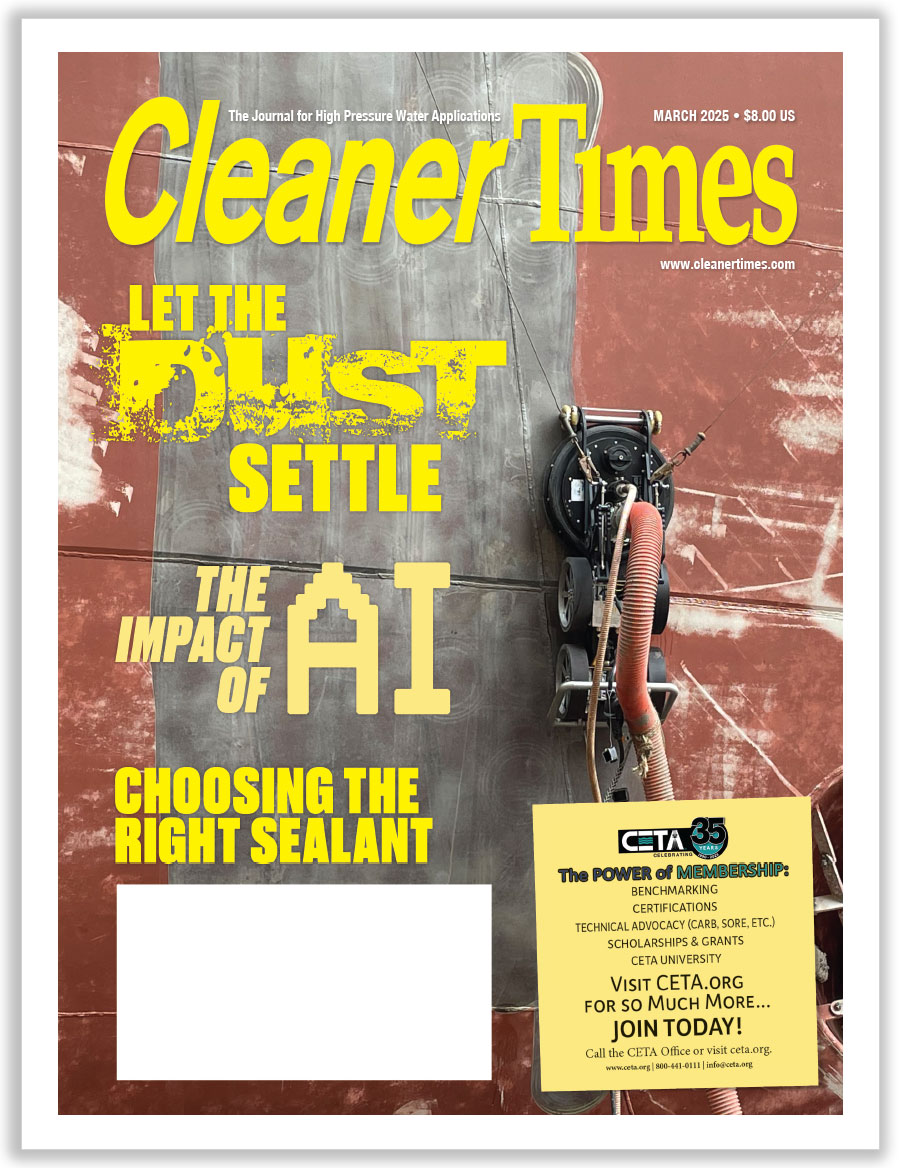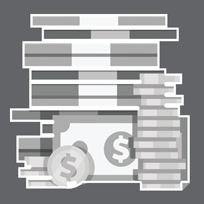
Establishing a Good Relationship with Your Bank
By April Hirsch / Published July 2016

In the last half of the 20th century, certain givens were attached to banks. For example, banks paid detectable interest on deposits. Banks also could serve as fiduciaries, guardians, and executors.
In the 21st century, technology and globalization meet everywhere, including in the sphere of banking. Yet for all the financial transactions that can be accomplished via electronic and virtual means alone, there are still good reasons to enter a bank and talk with a banker. Ann Marie Bell, an entrepreneur and a former banker, writes about that in the sidebar to this article.
As for what sometimes seems like unprecedented upheaval in the world of financial institutions, disorder has long been the rule, not the exception. As 2008 reminds us, the transition from the money changers of Biblical times to present conditions is punctuated by problems. (Incidentally, the word bank derives from the name of the table used by money changers.)
The 20th century began with the Panic of 1901, which was followed by the Panic of 1907 and increasing interest in government regulation. Following the failure of many banks in the late 1920s and early 1930s, the Federal Deposit Insurance Corporation (FDIC) was established in 1933.
At the end of 2015, there were 6,182 FDIC-insured and 3,947 FDIC-supervised institutions in the United States. The number of U.S. banks held steady around 15,000 between 1940 and 1984—with individual changes, of course—and then began to shrink through consolidation, acquisition, and sometimes failure, all during an interval when the population doubled. By the end of 2003 (five years before the financial crisis of the last decade), there were just 7,842 bank and thrift companies.
With so few banks and so many alternatives, can one still form a relationship with a bank? Yes. Moreover, doing so is important. “In a service business, such as the power washing industry, people are the difference,” says Joe Harvey, president of Averus Inc. in Gurnee, IL. “There is a place and need for both Internet banks and traditional brick-and-mortar banks, but what an Internet bank misses is the insight to service-based operations.”
Person-to-person communication strengthens understanding, says Harvey. “Technology is certainly vital to progressing and giving you a competitive edge. However, Internet banks are transaction based, and traditional banks are customer based. You choose what works better for you, retelling your story each time you have a need or having someone who knows your story and works as your partner to help you achieve your goals.”
What Makes A Good Relationship?
“Banking, like most good relationships, is dependent on having open dialogue and a solid understanding of each other’s needs and expectations,” says Harvey. “You should have a main point of contact at your bank, a person who understands your business, service, size, goals, growth forecast, and needs for capital.”
The contact should be forthcoming with vital information. “They also need to clearly communicate to you their expectations, including ratios, financial requirements, and any liens and covenants, so you can factor the impact of those things,” says Harvey.
When choosing a bank, do so on the basis of the service, not the low- or high-visibility of the institution. “Your bank needs to have solid customer service to be able to meet your specific business needs, provide sound advice when offering products, and include consideration for operational efficiencies,” says Harvey.
“A community bank can be just as competitive as larger regional and national banks, so the ease of transaction and individual attention will be the difference in your overall experience,” explains Harvey. “Additionally, a bank should offer technology that provides you remote access to your account records, the capability to easily run reports, and the ability to set up account notifications.”
To get started on finding a good bank and a viable partnership, ask others about their experience. “I always recommend a referral from a contact of a similar business in size or scope, an accountant, tax advisor, or colleague,” says Harvey.
“With that personal referral, you have a resource to provide insight into their experience, any advantages or challenges to meeting requirements, what the loan approval process is like, and the overall ease of doing business with them,” explains Harvey. “A bank should be your partner. They’re in the business of lending money, and as a business, you need money for capital, growth, and other expenses. Your bank should be competitively priced and in your corner as your advocate.”
Success Defined
How long of a partnership may one expect to have with a bank? Try as long as things go well. “I have been with the same bank for more than 50 years, since I was eight years old depositing my savings in pennies,” says Paul Horsley, president of Scott’s Pressure Wash in Calgary, Alberta, Canada. “I’m sure they don’t know that, but it’s the truth.”
The longevity is easy to explain, says Horsley. “I have been a contractor-owner for more than 25 years and still feel that they service me well. Banking has changed many times over those years from when you used to go to the bank to visit the bank manager for loans, etc., and now I have a commercial account manager that comes to my place of business to see if they can lend me money.”
The visits are a mix of substance and cordiality. Besides the pleasantries over coffee, there is the genuine interest of the manager. “He wants to understand my business so he can figure out if he can help anywhere,” says Horsley.
That understanding on the part of the account manager takes many forms. “He reviews my bank accounts to see if I’m paying too many fees…” says Horsley. “He looks for money sitting idle in a savings account that he would suggest putting into an interest bearing account.”
The ability to work closely with a bank can cut costs. “We use our bank to make payroll direct deposits to our employees’ accounts, which has saved money and time for us,” says Horsley. “Because of this service, they ask to review our yearly financials to make sure we are a viable company, but I believe it’s also an opportunity for another set of eyes to review my business, and I ask questions. It’s free.”
“I like to visit with my account manager yearly because if I ever did need a loan or advice, I know he or she would be willing to help me,” explains Horsley. “I have a relationship with my bank and I like the friendship I have with my account manager.”
Horsley suggests asking about the many services banks offer to businesses and taking advantage of those that fill a need. “Recently I had a sit-down meeting with one of their accountants and lawyer, as well as the account manager and an adviser for succession planning. It was a great meeting, informative, and a free service.”
Banker’s Perspective
By Ann Marie Bell
Mobile deposits and ATMs aside, savvy businessmen know that building and maintaining a relationship makes it worth opting out of the drive-through on occasion and going into the bank.
When you step into the branch, you get to meet and form a relationship with the bank’s employees. Tellers on the “front lines” may not have the authority to make changes to your account, but they know which office to put you in when you need something done. They can match your personality with the right banker. And that will go a long way, because you want a banker willing to advocate for you when you need it.
Tellers know a lot about the health of your business because they cash the checks for your employees and handle your deposits. The head teller is usually the one who handles the report of items that need special attention, such as if a check is being presented for payment and funds are not in the account. They can let you know you need to make a deposit or have a banker handle the call and transfer funds from one account to another.
Your banker is the one that helps you obtain lines of credit, business credit cards, and loans. What do I look for in a banker? Are they willing to advocate for my business and essentially be an extension of my business by watching over its financial health? Are they willing to introduce me to their partners—merchant services, payroll, ACH, mortgage, business credit cards, etc.? Do they view my business as a priority, or am I just a mark to record?
Assess how much a banker is willing to help your business by asking hypothetical questions: If I am going to be leaving on vacation and I am expecting a large deposit from a client, will you be able to call me and let me know it has arrived? Will you be able to transfer money into my personal account for me once it has arrived?
Know how to use what your bank has to offer. Same-day deposit credit can be very important for small businesses with employees and daily expenses or at the startup of your company. Overdraft protection for your business account may be available, or you may need to apply for a business line of credit.
Consider how often your banker reaches out to you. Does he call to follow up and provide you with new solutions that the bank is offering? Is he placing you in an analyzed checking account (one that charges fees for each item), or would a basic account be a better fit? Is he going to grow with you and touch base with you on a regular basis? Is he doing what is best for you, himself, or the bank?
When I was a banker, I knew my clients’ voices and was happy to help them via phone. Do you need a loan? Yes, I can do that over the phone and have the paperwork ready for you to sign. Are you considering buying a new work truck? Let’s look at the options we have (lease line of credit, business auto loan, etc.). That’s how my conversations would go.
It’s important to have a relationship with a banker who is as invested in your success as you are.
Ann Marie Bell is an entrepreneur and founder of Under-standing Credit Seminars, Accelerate Your Credit Score.com. A former small business lender and officer with Wachovia Bank and a former assistant vice president with Suntrust Bank, she has been a guest lecturer for SCORE, providing small business owners with insight into business financing and business bank accounts.





